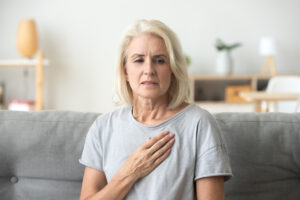There has been lots of press about DHEA recently. Some women swear by it and others say it’s all just hype. So I thought I’d share my experience about using DHEA both personally and professionally.
What is DHEA?
DHEA (dehydroepiandrosterone) is a steroid hormone and is produced by the adrenal glands, ovaries in women or testicles in men, and the brain. It is important for both men and women and increases energy levels, giving us that feeling of “joie de vivre.” I call it “The Vitality Hormone” with my patients, and it can give people a little extra sparkle.
 DHEA is a precursor to male and female sex hormones, which means it’s a building block for the body to produce oestrogen and testosterone. It starts to decrease after the age of 30 and this drop correlates with the signs and symptoms of ageing. There has been much research into DHEA that shows it can be used to fight depression and fatigue, enhance feelings of well-being and increase strength. DHEA can also help with the symptoms of menopause as it helps with boosting oestrogen and testosterone, reducing body fat and improving libido.
DHEA is a precursor to male and female sex hormones, which means it’s a building block for the body to produce oestrogen and testosterone. It starts to decrease after the age of 30 and this drop correlates with the signs and symptoms of ageing. There has been much research into DHEA that shows it can be used to fight depression and fatigue, enhance feelings of well-being and increase strength. DHEA can also help with the symptoms of menopause as it helps with boosting oestrogen and testosterone, reducing body fat and improving libido.
DHEA is also made in the adrenal glands, which means if we are under a lot of stress which may raise our cortisol levels, we could also have lower DHEA levels. Good levels of DHEA can help the body cope with stress, and helps resilience both emotionally and physically.
Benefits of DHEA
In clinical experience, I have seen balancing DHEA help with weight loss, metabolism and boosting testosterone levels without having to use testosterone directly to aid energy and sex drive. It can also help in boosting the immune system. DHEA can be taken in a tablet form, or it can be manufactured in to a cream form or lozenge that can be used buccally (dissolving in between the gum and top lip). In the USA and certain other countries, it is widely available as an over the counter supplement. However in the UK, it is a medication that needs to be prescribed.
Dosage
An average dose I prescribe for a woman is between 1—25mg and between 25-50mg for a man. I recommend baseline blood levels to be checked and then repeated periodically to make sure levels are not becoming elevated.
Potential Side Effects
Some women can experience side effects caused by too high a dosage which is why it’s important to check blood levels. Side effects could also be caused by the body struggling to metabolise it. Common side effects include greasy skin, acne or irritability or other mood disturbances.
From my own personal experience with DHEA, I have found that it can definitely help with energy. However, I can only take a very low dose, as I don’t metabolise it very well and high doses can cause spots for me. I have had DNA testing done that confirms that I don’t metabolise hormones well, which is a great test I will share more about next month.
So in summary, is it a new miracle drug?
For some, yes. It is easily available, it is inexpensive and for some it can be an alternative to taking other drugs or hormones. However, it is still a medication that needs monitoring, and people must be aware there can be side effects.







